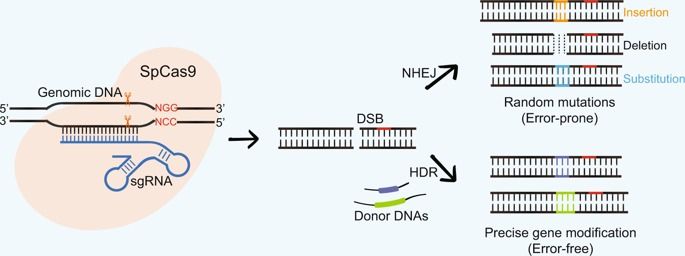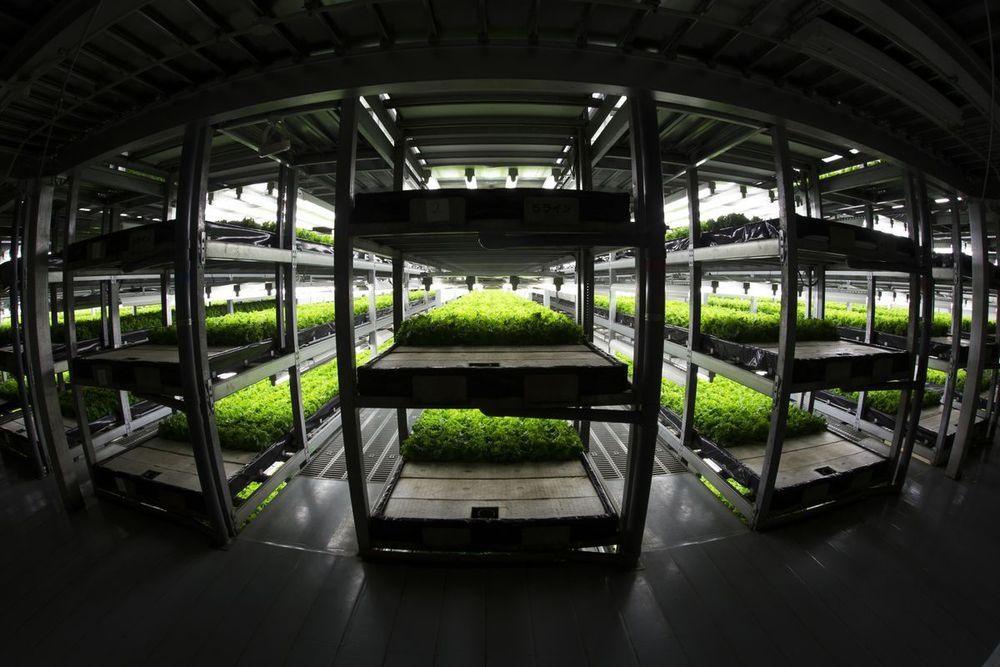What if this rare mushroom is a solution to the earth’s plastic problem?



Fruits are major sources of essential nutrients and serve as staple foods in some areas of the world. The increasing human population and changes in climate experienced worldwide make it urgent to the production of fruit crops with high yield and enhanced adaptation to the environment, for which conventional breeding is unlikely to meet the demand. Fortunately, clustered regularly interspaced short palindromic repeat (CRISPR) technology paves the way toward a new horizon for fruit crop improvement and consequently revolutionizes plant breeding. In this review, the mechanism and optimization of the CRISPR system and its application to fruit crops, including resistance to biotic and abiotic stresses, fruit quality improvement, and domestication are highlighted. Controversies and future perspectives are discussed as well.

The first time Vayu Maini Rekdal manipulated microbes, he made a decent sourdough bread. At the time, young Maini Rekdal, and most people who head to the kitchen to whip up a salad dressing, pop popcorn, ferment vegetables, or caramelize onions, did not consider the crucial chemical reactions behind these concoctions.
Even more crucial are the reactions that happen after the plates are clean. When a slice of sourdough travels through the digestive system, the trillions of microbes that live in our gut help the body break down that bread to absorb the nutrients. Since the human body cannot digest certain substances — all-important fiber, for example — microbes step up to perform chemistry no human can.
“But this kind of microbial metabolism can also be detrimental,” said Maini Rekdal, a graduate student in the lab of Professor Emily Balskus and first-author on their new study published in Science. According to Maini Rekdal, gut microbes can chew up medications, too, often with hazardous side effects. “Maybe the drug is not going to reach its target in the body, maybe it’s going to be toxic all of a sudden, maybe it’s going to be less helpful,” Maini Rekdal said.
In their study, Balskus, Maini Rekdal, and their collaborators at the University of California San Francisco, describe one of the first concrete examples of how the microbiome can interfere with a drug’s intended path through the body. Focusing on levodopa (L-dopa), the primary treatment for Parkinson’s disease, they identified which bacteria are responsible for degrading the drug and how to stop this microbial interference.

UMBC’s Hua Lu, professor of biological sciences, and colleagues have found new genetic links between a plant’s circadian rhythm (essentially, an internal clock) and its ability to fend off diseases and pests. The findings were 10 years in the making and published in Nature Communications this week. The results could eventually lead to plants that are more resistant to disease-causing pathogens and better treatment for human diseases.
“It’s quite cool,” Lu says, “because, in both plants and animals, people are beginning to study the crosstalk between the circadian clock and the immunity system.”


Scientists from the Universities of Regensburg and Mainz and the Max Planck Institute for Chemical Ecology discovered that the eggs of the European beewolf produce nitric oxide. The gas prevents the larvae’s food from getting moldy in the warm and humid brood cells. The results were published in the journal eLife.
Food stored in warm and humid conditions gets moldy very quickly and thus becomes inedible or even toxic. To prevent this, we use refrigerators and freezers as well as various other methods of preservation. Animals do not have such technical appliances and therefore need to find other ways to preserve food. The European beewolf Philanthus triangulum, a solitary wasp species whose females hunt honey bees, has evolved a successful method of food preservation. A female takes up to five honey bees into its brood cells where they serve as food for a young beewolf. Female beewolves prefer to build their nests in sunlit and sandy places. The nests are deep and therefore the brood cells are warm and humid. Such conditions are favorable for the development of the beewolf larvae; however, they also foster the growth of mold fungi. As a matter of fact, bees stored under such conditions in the lab were overgrown by mold within one to three days.

We may like to think that what we do in our daily lives only affects ourselves and perhaps a few people around us, but the increasingly active field of scientific inquiry called epigenetics suggests that life experiences like what we eat and the environments we expose ourselves to can influence the health and development of our kids and the generations beyond them.
Studies of both humans and animals have suggested that a father’s experiences can be transmitted across generations, but the mechanism for this epigentic inheritance hasn’t quite been clear.
New research published Wednesday in Nature Communications details how Susan Strome’s lab at UC Santa Cruz observed the transmission of epigenetic markers in the sperm of the small roundworm Caenorhabditis elegans.


THE PHOTONIC FENCE:
Laser Insect Monitoring and Eradication.
The Photonic Fence is poised to revolutionize response to and monitoring of harmful insect incursions in agriculture, hospitality, government, military and residential pest control markets.
The Photonic Fence monitors insects in flight and eliminates those identified as targets by shooting them down with a micro-burst of laser energy. The Photonic Fence also holds the potential to create entirely new methods of entomological study.